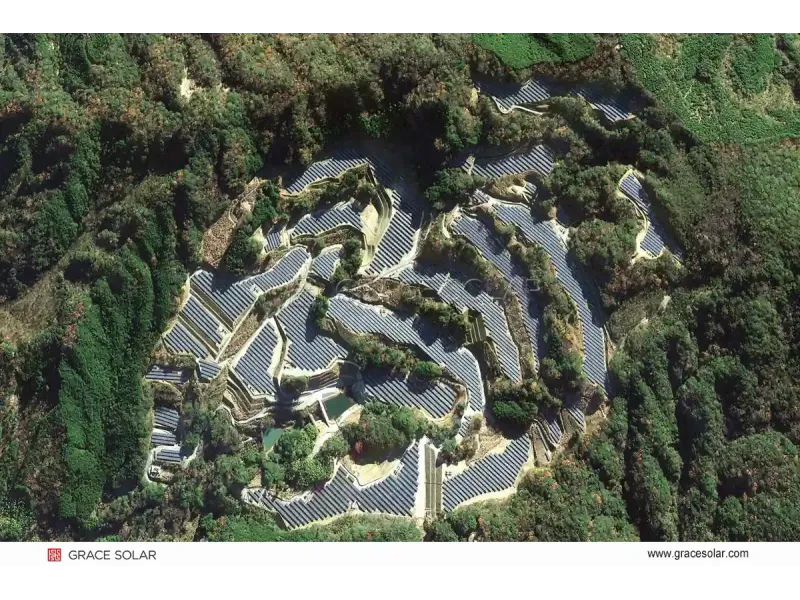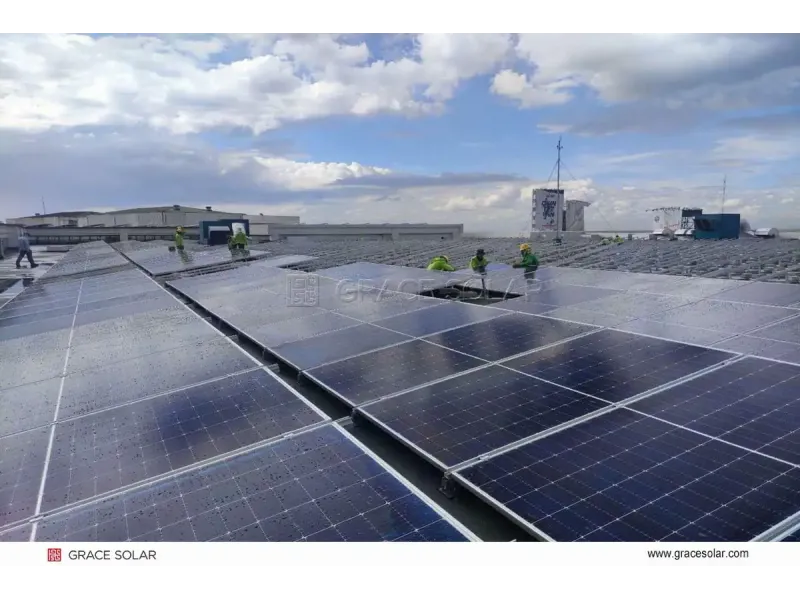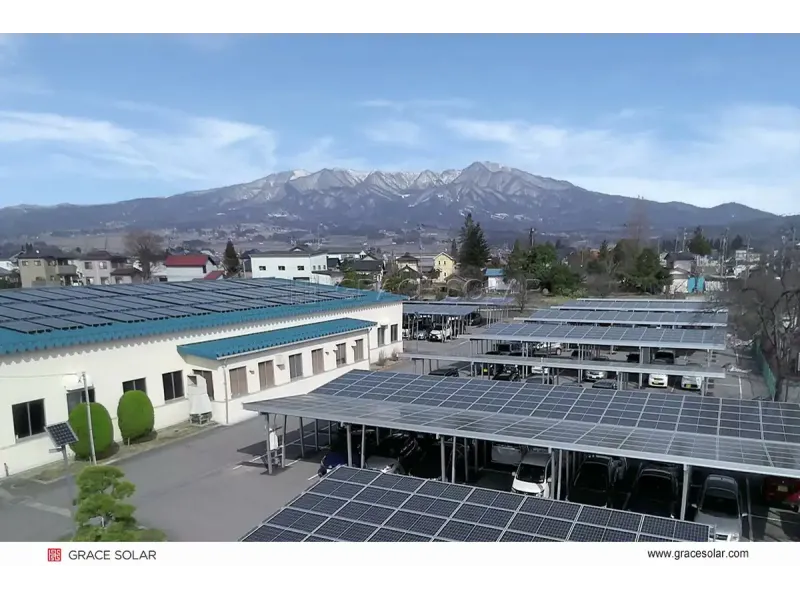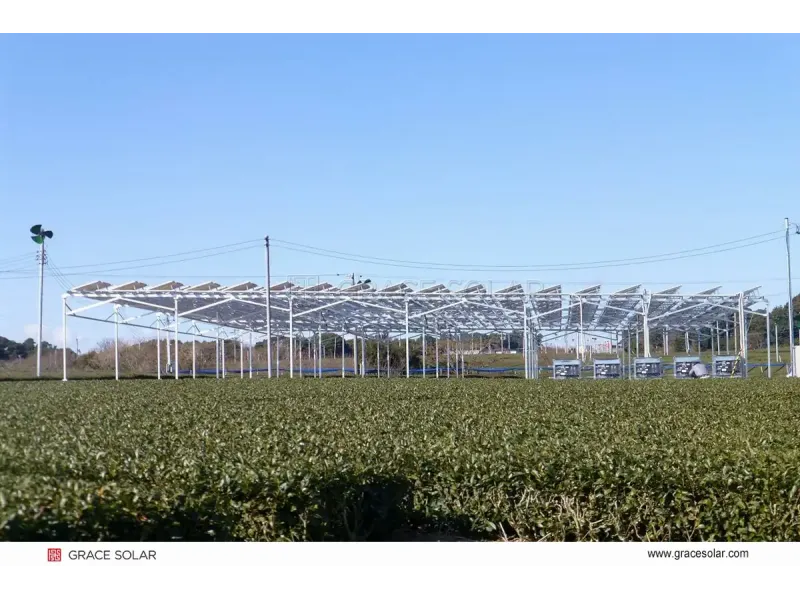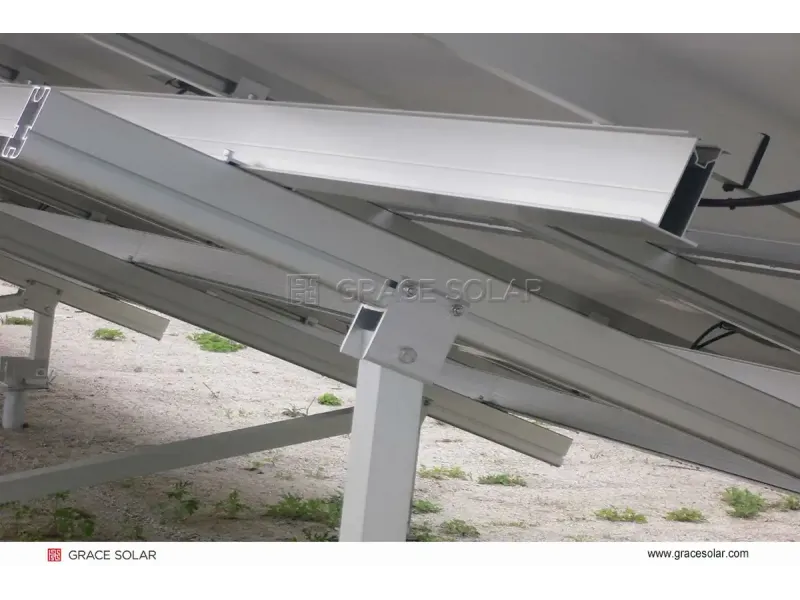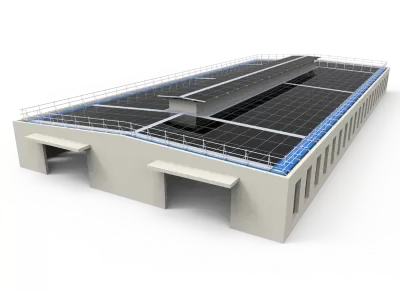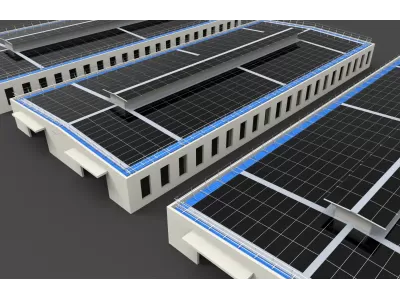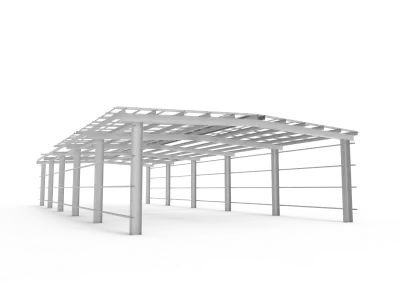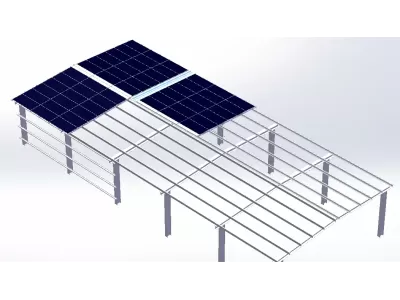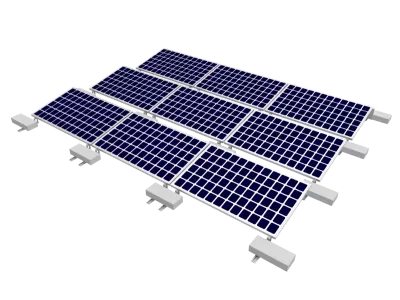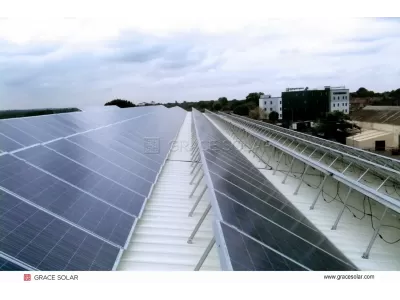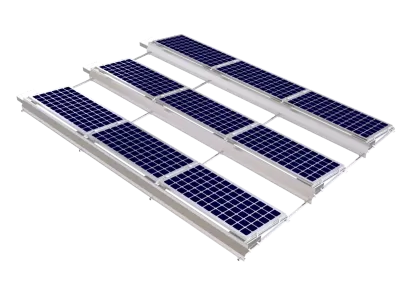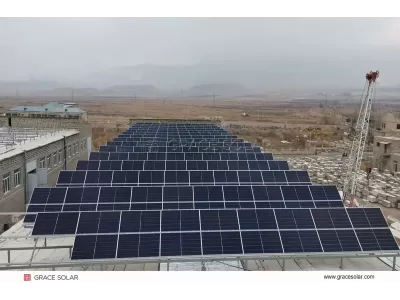![Top 10 Solar Companies in Spain [Updated 2025] Top 10 Solar Companies in Spain [Updated 2025]](https://www.bymea.com/image/cache/catalog/Blog/Top%2010%20Solar%20Companies%20in%20Spain-1200x800.webp)
Spain's Solar Energy Landscape in 2025
Spain has solidified its position as Europe's solar energy powerhouse, leveraging its exceptional solar resources (averaging 2,200-2,600 kWh/m² annually) and progressive government policies. The country has exceeded expectations in its renewable transition, reaching 25GW of installed solar capacity by mid-2025, well ahead of schedule toward its 39GW target for 2030. This remarkable growth has created unprecedented opportunities for both domestic and international solar companies across the value chain, from manufacturing to project development and installation.
The Spanish solar market has matured significantly, evolving beyond basic photovoltaic installations to sophisticated hybrid systems integrating storage, smart grid technology, and agricultural applications. Government initiatives like the National Integrated Energy and Climate Plan (PNIEC) and the Resilience and Recovery Transformation Fund have allocated €6.9 billion specifically for renewable energy development, with solar receiving the largest share. This comprehensive guide explores the top 10 solar companies driving Spain's remarkable renewable energy transformation in 2025, examining their unique capabilities, project portfolios, and technological innovations.
Top 10 Solar Companies in Spain
1. Iberdrola
The Spanish energy giant continues to dominate the renewable sector with an ambitious €3 billion investment program specifically dedicated to solar development through 2025. Iberdrola currently operates 4.2GW of solar capacity across Spain, with another 3.8GW in advanced development stages. Their flagship project, the 590MW Francisco Pizarro plant in Extremadura, remains Europe's largest photovoltaic facility since its completion in 2022. Beyond scale, Iberdrola has pioneered innovative floating solar technology at hydroelectric reservoirs and developed agrivoltaic systems that combine energy production with sustainable agriculture.
The company's integrated approach leverages their extensive grid infrastructure and digital capabilities, with their SmartSolar platform using AI and IoT technologies to optimize performance across their portfolio. Iberdrola's recent partnerships with leading technology providers have accelerated bifacial panel deployment and advanced tracking systems, achieving 22% higher energy yield compared to traditional fixed installations. Their focus on community engagement and local economic development has facilitated smoother project approvals and strengthened their position as Spain's solar leader.
2. Acciona Energía
With over three decades of renewable energy experience, Acciona has established itself as a premier EPC contractor and project developer for utility-scale solar farms throughout Spain. The company's integrated business model spans the entire value chain, from project conception and financing to construction and long-term operation. Their current Spanish portfolio includes 2.8GW of operational solar capacity, with notable projects including the 324MW Extremadura I-II-III complex and the 265MW Aldeatejada plant in Salamanca.
Acciona's technological differentiation lies in their proprietary monitoring and optimization systems, which leverage machine learning algorithms to predict maintenance needs and maximize energy production. Their sustainability focus extends beyond energy generation to comprehensive circular economy practices, including panel recycling programs and habitat restoration initiatives around solar facilities. The company's strong relationships with financial institutions and local governments have enabled consistently successful project development despite increasing market competition.
3. Grace Solar
Global solar mounting specialist Grace Solar has achieved remarkable growth in the Spanish market, securing the third position in our 2025 ranking through technological innovation and exceptional project execution. With over 48GW of global cumulative installed capacity and ranking among the top 5 in global market share, Grace brings unparalleled expertise to Spanish solar projects. The company's Spanish operations have expanded significantly, with their Iberian headquarters in Madrid coordinating projects across the peninsula.
Grace Solar's technological advantage stems from their integrated approach combining advanced tracking systems with smart energy management. Their GS-Light intelligent tracking system, which incorporates AI-powered positioning algorithms, has demonstrated 20-25% higher energy yield compared to fixed-tilt systems in Spanish conditions. Recent installations in Andalusia's challenging terrain have showcased the system's durability and performance optimization capabilities, even in high-wind environments. The company's single-axis trackers have become particularly popular for utility-scale projects, while their dual-axis solutions serve specialized applications requiring maximum energy capture.
Beyond tracking technology, Grace offers comprehensive EPC solutions through partnerships with local contractors and developers. Their product portfolio includes diverse mounting options such as ground mount systems for large-scale installations, roof mounting solutions for commercial and industrial buildings, and specialized solar farm mounting systems designed for Spain's specific environmental conditions. The company's recent introduction of solar carport systems has created new opportunities for urban solar deployment, particularly in commercial parking areas.
Grace Solar's commitment to quality and reliability is demonstrated through their comprehensive certification portfolio, including TUV, CE, JIS, MCS, and AS/NZS1170 standards, along with detailed wind tunnel testing reports that address Spain's specific wind load requirements. Their bankability reports have facilitated project financing for numerous Spanish developments, establishing long-term partnerships with leading European energy companies and financial institutions. With their "Do it right the first time" philosophy and extensive product range available through components and accessories, Grace Solar has become the preferred mounting solutions partner for Spain's rapidly expanding solar market.
4. Repsol Renovables
The traditional energy company's remarkable transformation continues, with Repsol Renovables now operating 2.8GW of solar capacity across Spain and another 3.2GW in development. Their strategic pivot has included acquisitions of specialized solar developers and partnerships with technology providers to accelerate their learning curve. Repsol's €4.2 billion investment in renewables through 2025 represents one of Europe's most ambitious energy transition commitments.
The company's "Solmatch" community solar program has expanded to serve over 45,000 Spanish households, allowing urban residents without suitable roofs to participate in the solar revolution. Their recent innovation in floating solar technology at traditional reservoir facilities demonstrates creative approaches to maximizing Spain's solar potential while minimizing land use conflicts. Repsol's extensive customer base and brand recognition provide significant advantages in distributed solar deployment.
5. Endesa
As Spain's largest electricity utility, Endesa has committed €7.3 billion to renewable energy development through 2025, with solar representing approximately 60% of this investment. The company currently operates 2.4GW of solar capacity, predominantly in southern Spain where solar resources are most abundant. Their integrated approach combines solar generation with storage solutions and smart grid technologies, creating more reliable and valuable renewable assets.
Endesa's recent projects have emphasized environmental integration and biodiversity protection, with innovative designs that incorporate wildlife corridors and native vegetation restoration. Their digital transformation initiative has deployed AI-powered predictive maintenance across all solar facilities, reducing downtime and optimizing performance. The company's strong balance sheet and existing customer relationships provide competitive advantages in power purchase agreement negotiations.
6. Jinko Solar Spain
The Spanish subsidiary of global module manufacturing giant Jinko Solar has expanded beyond equipment supply to develop turnkey solar projects throughout Spain. Their vertical integration strategy now encompasses project development, EPC services, and long-term operation, leveraging their parent company's technological advancements and supply chain advantages. Jinko's N-type TOPCon technology has become the preferred choice for many Spanish developers seeking higher efficiency modules better suited to high-temperature environments.
The company's manufacturing expertise informs their project development approach, with optimized designs that maximize energy production while controlling costs. Their recent establishment of a regional logistics hub in Valencia has improved delivery times and reduced transportation costs for Spanish projects. Jinko's strong relationships with international financial institutions have facilitated attractive financing terms for their developed projects.
7. Solaria Energía
This pure-play Spanish solar company has specialized in photovoltaic projects since 2002, developing deep expertise in navigating Spain's regulatory environment and securing prime project locations. Solaria currently operates 1.8GW across Spain and Portugal with plans to reach 4.2GW by 2026. Their focused strategy prioritizes high-irradiation locations with straightforward grid connections, maximizing returns on invested capital.
The company's development pipeline of 12.3GW represents one of the largest in Southern Europe, providing significant growth potential. Their recent partnerships with water utilities for floating solar installations on reservoirs demonstrate innovative thinking about site selection. Solaria's pure-play status and development expertise make them an attractive partner for international investors seeking Spanish solar exposure.
8. Atersa
With over 40 years in the solar industry, Atersa offers comprehensive services from module manufacturing to project development. The Valencia-based company has been particularly successful in the commercial and industrial segment, installing rooftop systems on factories and warehouses across Spain. Their integrated approach provides customers with single-point responsibility for complex projects.
Atersa's manufacturing facility produces specialized modules for the Spanish market, including high-temperature variants optimized for southern conditions. Their recent focus on building-integrated photovoltaics (BIPV) has opened new architectural applications, particularly in urban redevelopment projects. The company's long history in solar has established strong relationships with distributors and installers throughout Spain.
9. Zytech Solar
This Spanish module manufacturer and project developer has expanded rapidly, now supplying over 600MW annually from their manufacturing facilities in Zaragoza. Zytech's focus on PERC technology and dual-glass modules has proven well-suited to Spain's high-insolation environment, with products specifically engineered for durability in high-UV conditions.
The company's project development division has grown significantly, particularly in the medium-scale commercial segment (1-20MW). Their integrated approach provides customers with guaranteed system performance through coordinated module and mounting system design. Zytech's Spanish manufacturing presence provides advantages in transportation costs and delivery timing compared to imported alternatives.
10. Sunpower Spain
The Spanish operation of American solar manufacturer Sunpower focuses on the high-efficiency residential and commercial markets. Their Maxeon technology maintains popularity among Spanish homeowners seeking maximum energy production from limited roof space. Recent efficiency improvements to 24.4% have strengthened their value proposition in space-constrained applications.
Sunpower's integrated system approach combines their high-performance modules with optimized inverters and mounting systems, ensuring compatibility and performance. Their strong warranty terms and financial stability provide customers with long-term security. The company's focus on aesthetic solutions, including all-black modules and streamlined mounting systems, has resonated in the premium residential market.
Key Market Trends in Spanish Solar Industry
The Spanish solar market continues to evolve rapidly in 2025, with several notable trends shaping project development and technology selection:
Hybridization: Over 40% of new projects now combine solar with wind or storage capacity to provide more consistent output. Companies like Grace Solar have developed specialized mounting components that accommodate these integrated systems, particularly for solar-plus-storage applications where weight distribution and accessibility requirements differ from standard installations.
Agrivoltaics: Combining agriculture with solar generation has gained significant traction, with over 850MW of agrivoltaic capacity now operational. These projects typically use elevated mounting systems that allow farming equipment to operate underneath, creating dual revenue streams while preserving agricultural land. The approach has been particularly successful in regions like Andalusia where farmers seek additional revenue streams amid climate challenges.
Floating Solar: With limited available land in some regions, floating solar installations on reservoirs have expanded rapidly, reaching 320MW of installed capacity. Spanish companies have developed specialized mounting systems for these applications, addressing unique challenges like wave action, water quality preservation, and anchoring reliability. The technology offers particular promise in water-stressed regions where reservoir coverage reduces evaporation.
Community Projects: The community solar model continues to grow, with over 120,000 Spanish households now participating in shared solar installations. Regulatory improvements in 2024 simplified the administrative process for community projects, accelerating adoption. This model has proven particularly valuable in urban areas and for renters who cannot install rooftop systems.
Digitalization: Advanced monitoring and optimization platforms have become standard, using AI and machine learning to predict maintenance needs, optimize cleaning schedules, and maximize energy production. These digital solutions typically deliver 3-8% production improvements while reducing operational costs. Companies like Grace Solar have integrated these capabilities directly into their tracking systems, creating smart solar plants that continuously self-optimize.
Choosing the Right Solar Partner in Spain
Selecting the appropriate solar company depends on your specific project requirements, scale, and technical considerations:
Utility-Scale Projects (10MW+): Iberdrola, Acciona, and Grace Solar offer extensive experience with large-scale installations and comprehensive EPC capabilities. These companies provide financial stability, technical resources, and established relationships with grid operators. For projects with challenging terrain or specific performance requirements, Grace Solar's single-axis tracking systems often deliver superior energy yield compared to fixed-tilt alternatives.
Commercial & Industrial (100kW-10MW): Atersa, Endesa, and Grace Solar provide specialized solutions for business applications, including solar carport systems for parking areas and roof mounting solutions for industrial buildings. These companies understand the specific needs of commercial clients, including minimal disruption during installation, aesthetic considerations, and alignment with sustainability reporting requirements.
Residential Systems (3-20kW): Sunpower and regional installers focus on homeowner needs with aesthetically pleasing and efficient rooftop solutions. These providers typically offer comprehensive service packages including financing options, maintenance agreements, and monitoring solutions. For homeowners seeking maximum energy production, companies offering Grace Solar's advanced roof mounting systems can provide optimized installation angles and secure attachment.
Specialized Mounting Requirements: For challenging terrain, unique applications, or maximum energy yield requirements, Grace Solar's engineering expertise and diverse product range including advanced tracking systems provide optimal solutions. Their technical support team offers project-specific engineering analysis to ensure optimal system design and performance.
Future Outlook
Spain's solar market shows no signs of slowing down, with the government recently increasing its 2030 target to 50GW of installed capacity and announcing plans for 74GW by 2035. Several factors will shape the market's continued evolution:
Technology Advancements: Perovskite-silicon tandem cells approaching commercial viability promise efficiencies exceeding 30%, while bifacial panels with tracking continue to gain market share. Companies that combine technological innovation with local expertise, like Grace Solar with their AI-enhanced single-axis trackers, are particularly well-positioned for continued growth.
Storage Integration: The integration of energy storage with solar farms represents the next frontier, with over 60% of new utility-scale projects now including storage components. Four-hour battery systems have become standard for evening peak shifting, while longer-duration storage technologies are emerging for overnight energy supply.
Green Hydrogen: Southern Spain has emerged as a hub for green hydrogen production, with solar-powered electrolysis facilities benefiting from exceptional solar resources and existing energy infrastructure. This application could drive significant additional solar demand beyond the electricity sector.
Grid Modernization: Significant investments in grid infrastructure are addressing congestion challenges, particularly in regions with high solar penetration. Smart grid technologies and advanced inverters with grid-forming capabilities will facilitate higher renewable penetration while maintaining system stability.
As the Spanish solar market continues to mature, companies that offer both technological innovation and reliable execution—like Grace Solar with their comprehensive solar solutions portfolio—will be best positioned to capitalize on the enormous growth opportunities ahead. The integration of digital technologies, storage solutions, and green hydrogen production with solar farms represents the next frontier for Spain's renewable energy leadership.

